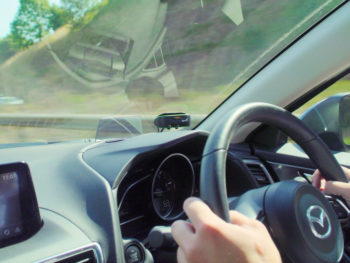Driver stress on the increase following a year of lockdown
Stress and anger behind the wheel has increased since the first national lockdown, with drivers admitting negative moods are affecting their driving behaviour.

More than one in 10 (11%) drivers now say they feel stressed or angry every time they are behind the whee
New research from Brake and Direct Line has revealed that 90% of drivers surveyed in March 2021 said they felt stressed or angry when behind the wheel, up 6% from March 2020, when the UK entered its first lockdown.
More than one in 10 (11%) drivers now say they feel stressed or angry every time they are behind the wheel, up 3% over the same period.
And more than half (53%) of drivers admit that stress or anger has an impact on their driving behaviour, including making them accelerate and brake more harshly, drive faster, and be less focused on the task of driving.
Government statistics show that aggressive driving contributed to 110 fatal crashes and one in 20 crashes which resulted in serious injury in 2019 (the most recent annual figures available). Research also highlights that stressed or angry drivers suffer a form of cognitive distraction that may affect their judgment and reaction times.
The findings have been published in the firms’ new ‘Driving behaviour’ report as they look to raise awareness of simple steps all drivers can take to ease their mood, and potentially reduce the risk of being involved in a crash:
Simple steps to ease your mood behind the wheel:
- Focus on calm, controlled breathing, which can help release muscular tension and relieve stress.
- Plan your route carefully, and allow plenty of time for your journey to avoid feeling pressured to rush.
- Drive at appropriate speeds for the road environment and avoid overtaking unless absolutely necessary, to reduce feelings of tension.
- Have something to eat before setting off, as hunger can affect your concentration. However, do not eat at the wheel as this could distract you from driving.
- Consider alternatives to driving, such as walking, cycling, or public transport, as these may help you to arrive feeling calmer and more refreshed.
Joshua Harris, director of campaigns for Brake, said: “The past year has been really challenging for people all across the UK, in many ways, and our research shows that driving behaviour may also have been affected by the pandemic. With the end of lockdown on the horizon, and our study showing that levels of stress and anger behind the wheel are on the up, it is vital that drivers are aware of the impact that negative moods can have on their driving behaviour. Every time you get behind the wheel, you are responsible for a machine with the capacity to cause catastrophic injury and even death, and so we urge all drivers to be aware of their moods and do all they can to minimise the impact of stress and anger on their driving.”












